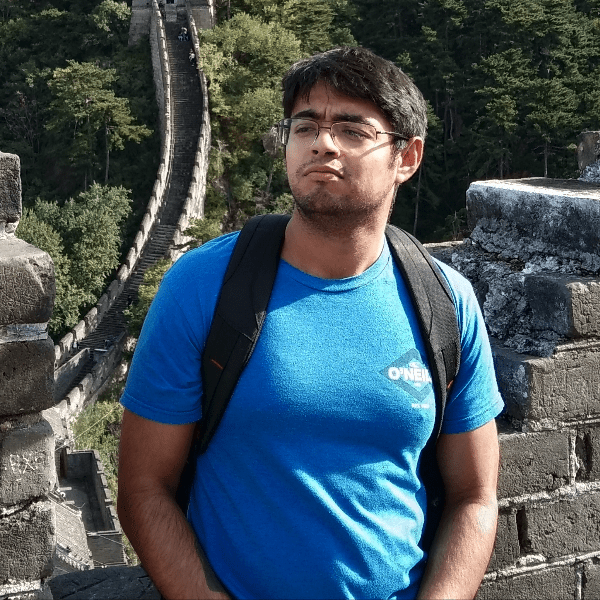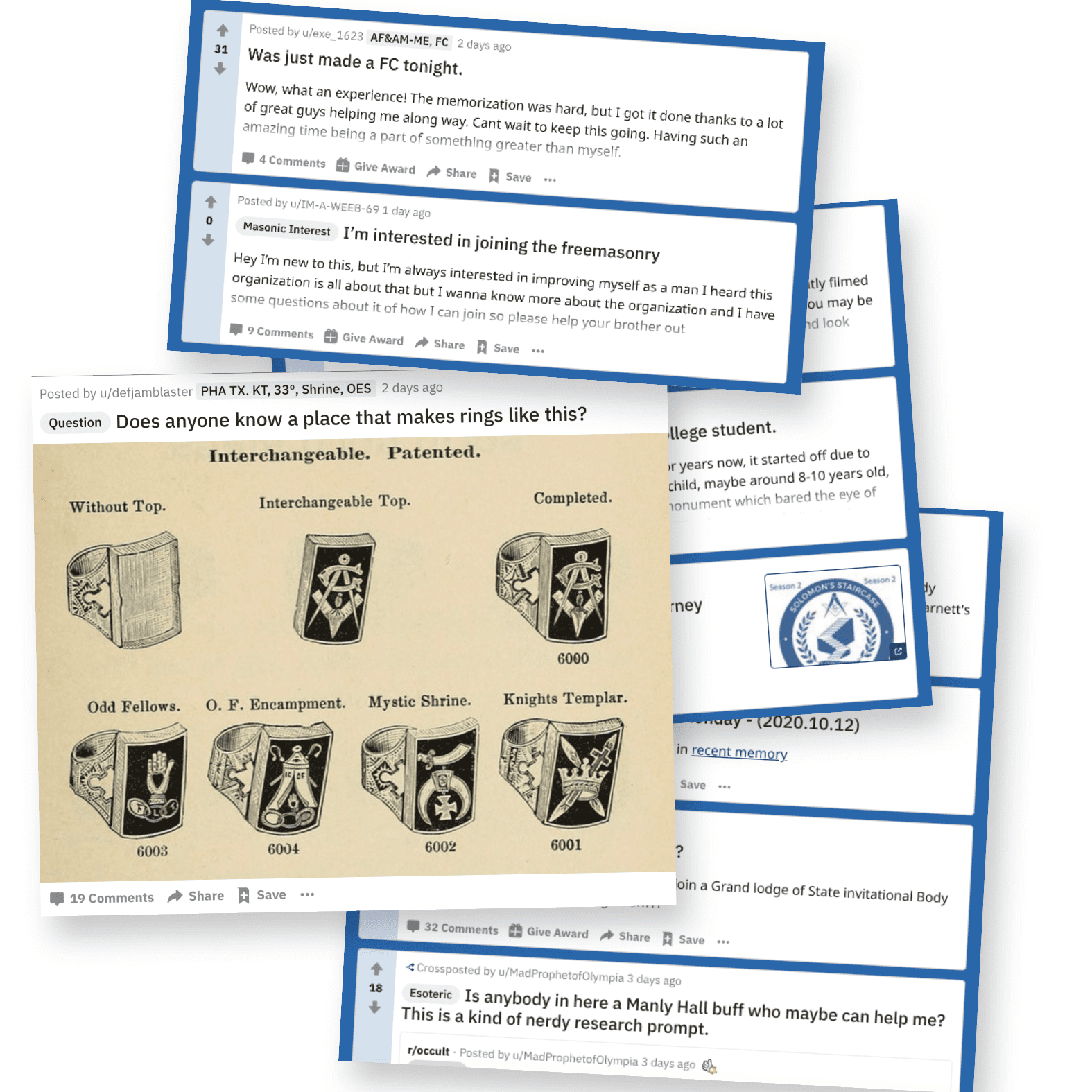
Member Profile: Alberto Castillo
Meet a San Diego Freemason staying in touch from a world away.
By Laura Benys
About a year ago, Masonic Homes CEO Gary Charland sat down with his newly hired innovations project manager, James MacRae. MacRae had begun his career in information technology on a help desk, troubleshooting clients’ problems with technology they used every day. This time, Charland said, his role would be a little different. “He told me, ‘We want someone to go out and find new technology for the Masonic Homes,’” MacRae recalls. “‘We want to look forward.’”
Since then, MacRae, Jasmine Meyers, and the rest of the nine-person technology team, newly led by Chris Smith, chief technology officer, have done just that, introducing cyber solutions that make residents and their families feel safe and happy on campus. In doing so, they’ve continued the Masonic Homes’s commitment to being on the cutting edge of advanced elder care—and remade its bucolic grounds into a bustling nerve center of futuristic gadgetry.
One of the team’s first and most transformative rollouts was Amazon’s Alexa. With voice-activated Alexa speakers installed in residents’ rooms and in common areas, residents can simply call out to ask a care team member for help. In the past, such a request would be phoned into the front desk, routed to the care team center, then forwarded to an individual caregiver, who’d respond in person. “That’s a lot of steps,” MacRae explains.
With the Alexa units in place, requests are sent directly to a care team member’s cell phone. But the real coup was integrating the Alexa units with technologies already used by other parts of the organization. Now, thanks to MacRae and company—and countless conversations with tech providers—residents can use voice commands to access information previously siloed in various departments’ systems. For instance, a common request by residents was for an online calendar of meal options. First, MacRae worked with the company that created the Masonic Homes’ digital activities calendar to develop a menu calendar. He then integrated the new calendar with the Alexa units, so residents could hear what was for dinner that night or see it displayed on their TV screen. For all that behind-the-scenes work, the end result is straightforward and effective: “Alexa, what’s for dinner tonight?”
Alexa was also integrated into the system used by the maintenance team, so residents can submit a work order by voice, whether in their own apartment or in common areas like hallways. Saying “Alexa, there’s a light out” creates a digital ticket that’s sent to the maintenance team instantly. “Innovation isn’t only about creating something that no one else has thought of,” Smith says. “It’s about taking an idea and giving it new life in a completely different field.” The ultimate system is easy to use and easy to support—MacRae’s goals for every new piece of technology. “I love looking at complicated things and making them simple,” he says. “To me, it’s like an art form.”
The Masonic Homes have been enthusiastic about studying technology that supports medical care. When the Stanford Research Institute International approached the campus in 2019 about evaluating a new smart toilet, residents were skeptical. But after hearing what the technology could mean for health care, a test group signed on.
Participants were given toilets equipped with cameras to analyze their, well, deposits. The images were then sent to medical professionals for evaluation, which can help detect signs of several types of illness, including urinary tract infections, which are common in the elderly and, if not treated early, can become life-threatening. After the study ended in March, the Masonic Homes signed on for a second test, which will run through February 2021. Both programs are helping companies develop and refine the technology while concurrently giving Masonic Homes leaders a glimpse of products the organization may decide to roll out in the future. “This technology is not just for flair,” MacRae says. “It helps residents maintain their independence longer. It gives them more information, and gets it to them faster.”
That’s been a mantra at the Masonic Homes for years, and it has participated in programs to test, among other things, smartwatches that track movement, heart rate, and blood pressure, and senior-friendly tablets equipped with video-chat software and games that promote brain health. Another initiative, to introduce virtual reality goggles to bedridden patients, has been on hold because of COVID-19, but staff are eager to get the devices into the hands of patients in the memory care program. By providing residents with goggles and their families with 360-degree cameras, they’ll be able to facilitate immersive remote experiences—say, enabling a resident to participate in a grandchild’s birthday party when they can’t physically attend. The program is called Memory Lane.
Another pilot set to launch soon will test a robotic caddy—essentially a motorized tray on wheels—that responds to voice commands. Say “Take the remote to the living room” and the caddy scoots off to perform the task, guided by a digitized layout of the apartment or building. For residents who struggle with mobility, a robotic valet can be a game changer, helping them live on their own longer.
Speaking of robots, the Masonic Homes has been looking into the health benefits of an especially cuddly one. Masonic Outreach Services recently delivered its first robotic pet dog to a patient living with dementia. Emotional-companion robots are growing in popularity, offering those with cogni-tive impairments like Alzheimer’s a simple form of companionship. Studies show they can reduce stress, improve mood, and help maintain social connections, all without the demands of pet ownership. Innovations like the Tombot, a computerized golden retriever puppy, or the Japanese Paro (a less realistic but similarly animatronic fuzzy white seal) are programmed to act in lifelike ways: Many respond to light or touch and look up when spoken to. They wag their tails and cock their heads. For certain patients, these aren’t just high-tech teddy bears. They serve an important therapeutic purpose.
“We don’t just roll out new tech because it’s fun. It has to improve lives.”
Future-focused initiatives like these are already having a big impact on residents’ lives. They’re also helping the organization strike the right balance between high-tech and human touch. Nobody is envisioning a future where seniors are served solely by a team of robot caregivers. Finding the sweet spot is all about enhancing patient care.
“Innovation doesn’t require advanced training—it’s borne out of a deep and abiding commitment to a cause,” Smith says.
To MacRae, it’s simple: “We don’t just roll out new tech because it’s fun. It has to improve lives.” For that to happen, residents and staff need to feel comfortable with the new tools. The key is education. So the technology team introduces technology in phases. For the Alexa units, they started with a single floor of the Union City campus, expanding to all five floors over the next several months, taking time along the way to make adjustments based on feedback from residents and staff. They posted flyers around campus with reminders about key features and, at least before the Coronavirus outbreak, held training sessions in the library. The team even created a PSA introducing the voice commands and aired it on the Masonic Homes’ internal TV channel.
All these advances go toward one goal: delivering the best possible experience to residents. That spirit of continuous improvement has already made the Masonic Homes a leader in senior care in so many ways, from healthy aging initiatives to employee satisfaction. Now you can add technology to the list. “Technology is ever-evolving,” says MacRae. “The Homes are evolving with it.”

RELIEF FOR CALIFORNIA MASONS AND THEIR FAMILIES
Contact us today to access your member benefits and services:
masonichome.org
(888) 466-3642
mcyaf.org
(877) 488-6293 (San Francisco)
(626) 251-2300 (Covina)
PHOTO-ILLUSTRATION BY:
Clark Miller

Meet a San Diego Freemason staying in touch from a world away.


For a generation of Freemasons, the place to turn for info isn’t in person, but rather online.